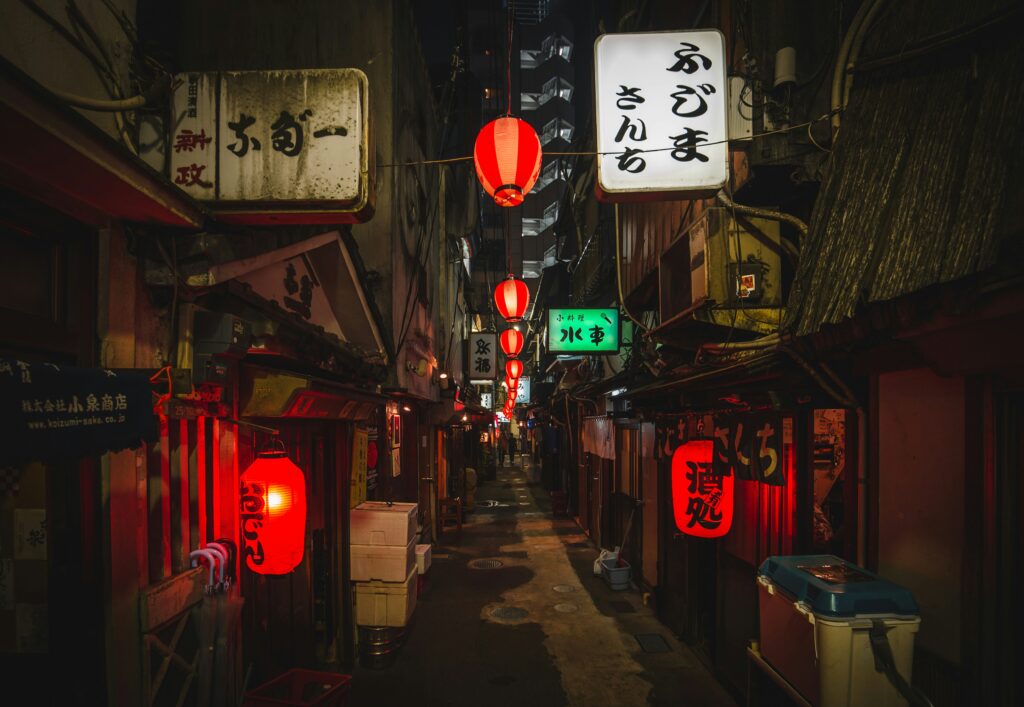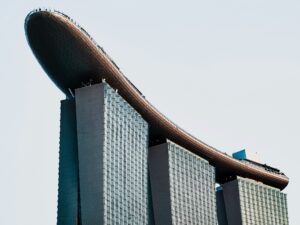
In a bid to position Tokyo as a global destination for both residents and businesses alike, Japan’s latest urban revitalization project, Azabudai Hills, emerges as a transformative composite redevelopment endeavor. With an investment exceeding US$4 billion, this ambitious venture underscores a strategic approach to modernizing the cityscape while preserving its cultural heritage.
Spanning over eight hectares, Azabudai Hills epitomizes Tokyo’s evolution from an aging district to a vibrant mixed-use development, meticulously curated to cater to diverse international audiences. Pre-pandemic, the site languished as a collection of outdated structures. However, after three decades of meticulous planning and substantial investment, it now stands as a modern marvel, boasting a harmonious blend of residential, commercial, and institutional spaces.
Central to Azabudai Hills’ allure is its commitment to catering to Tokyo’s cosmopolitan populace. The development features an array of amenities tailored to meet the needs of international residents and businesses, including an international school, English-speaking hospital, luxury residences, commercial establishments, and underground pathways. Moreover, with a dedicated space for venture capital firms and commercial ventures, Azabudai Hills aims to foster innovation and entrepreneurship within Tokyo’s bustling startup ecosystem.
A notable addition to the development is the renowned interactive art and light museum, teamLab Borderless, which relocated to Azabudai Hills in February 2024. This cultural gem further enhances the allure of the complex, offering visitors an immersive experience amidst its modern architecture and lush green spaces.
Azabudai Hills is not merely a testament to architectural innovation; it also prioritizes environmental sustainability. With vertical gardens and expansive parks comprising 2.4 hectares of the complex, the development embraces Tokyo’s green ethos while offering a contemporary urban living experience.
At its core, Azabudai Hills seeks to redefine Tokyo’s landscape by providing a dynamic living and working environment for both locals and expatriates. With a dedicated focus on fostering innovation and collaboration, the development aims to position itself as a hub for startups and multinational corporations seeking to establish a presence in Tokyo’s thriving business ecosystem.
The project’s inception dates back to 1989, reflecting a decades-long commitment to urban revitalization and community engagement. Through extensive collaboration with local stakeholders and meticulous planning, Azabudai Hills has emerged as a model for sustainable urban development in Tokyo.
Moreover, Azabudai Hills is part of a broader vision by Mori Building Co. to transform Tokyo into a global business and cultural hub. Building on the success of previous projects such as Roppongi Hills and Toranomon Hills, Mori Building Co. continues to spearhead initiatives aimed at revitalizing Tokyo’s urban landscape and promoting economic growth.
As Tokyo embraces its role as a global metropolis, developments like Azabudai Hills play a pivotal role in shaping the city’s future. By combining innovative design, sustainable practices, and community engagement, Azabudai Hills sets a new standard for urban redevelopment in Japan and beyond.




medicine in mexico pharmacies: cmqpharma.com – purple pharmacy mexico price list
mexican rx online
http://cmqpharma.com/# reputable mexican pharmacies online
buying prescription drugs in mexico online
mail order pharmacy india: world pharmacy india – best india pharmacy
mexican drugstore online п»їbest mexican online pharmacies pharmacies in mexico that ship to usa
top online pharmacy india: best online pharmacy india – best india pharmacy
online canadian pharmacy reviews: canada drugstore pharmacy rx – is canadian pharmacy legit
http://foruspharma.com/# best online pharmacies in mexico
pharmacies in mexico that ship to usa п»їbest mexican online pharmacies buying prescription drugs in mexico
canadian drug pharmacy: canadian family pharmacy – canada cloud pharmacy
my canadian pharmacy: canadian pharmacy oxycodone – legitimate canadian pharmacies
canadian neighbor pharmacy ed meds online canada canadian pharmacy drugs online
india online pharmacy: indian pharmacy – top 10 pharmacies in india
canadian medications: best rated canadian pharmacy – canadian pharmacy review
canadian pharmacy: canadian pharmacy com – canadian family pharmacy
cheapest online pharmacy india indian pharmacy online Online medicine home delivery
top 10 pharmacies in india: online pharmacy india – pharmacy website india
mexico pharmacies prescription drugs: п»їbest mexican online pharmacies – buying from online mexican pharmacy
https://foruspharma.com/# mexican rx online
https://paxloviddelivery.pro/# Paxlovid over the counter
buy amoxicillin 500mg uk: cheap amoxicillin 500mg – buying amoxicillin in mexico
http://clomiddelivery.pro/# can you get generic clomid
http://paxloviddelivery.pro/# paxlovid price
amoxicillin 500 coupon: amoxicillin discount – medicine amoxicillin 500
https://amoxildelivery.pro/# can you buy amoxicillin over the counter
http://amoxildelivery.pro/# can i purchase amoxicillin online
paxlovid price: Paxlovid buy online – paxlovid buy
http://paxloviddelivery.pro/# п»їpaxlovid
paxlovid for sale: Paxlovid buy online – paxlovid india
http://doxycyclinedelivery.pro/# doxycycline 400 mg
https://clomiddelivery.pro/# get cheap clomid without rx
paxlovid india: paxlovid generic – Paxlovid buy online
http://ciprodelivery.pro/# cipro 500mg best prices
cheap doxycycline tablets: doxycycline 50 – doxycycline online australia
how to buy cheap clomid no prescription: cost cheap clomid without prescription – how to buy clomid without prescription